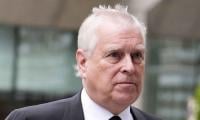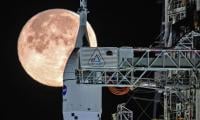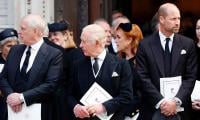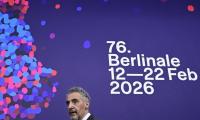‘Pakistan needs $32bn to fund external account next year’
ISLAMABAD: Pakistan’s fragile economy will need a whopping $32 billion over the next 12 to 18 months to fund its external account requirements, a senior economist said on Monday.
“We can either to go back to the IMF (International Monetary Fund) for facing tough economic and noneconomic conditions including strangulating the CPEC (China-Pakistan Economic Corridor)… or evolve consensus among all political parties for undertaking the path of self-reliance,” Dr Hafiz Pasha, former finance minister said at a lecture on ‘Economy of Tomorrow, organised by Germany’s Friedrich Ebert Stiftung (FES) and Sustainable Development Policy Institute (SDPI).
Dr Pasha said there was need to note the country was heading towards incipient financial crisis, “which would be quite different this time compared to 2008-9 and 2012-13”.
“This time around the crisis was not protracted or caused by the shocks but because of the deviation from the structural path,” he added. “There are major symptoms of structural illness like dwindling exports, shrinking tax base, and total breakdown of governance in public sector enterprises (PSEs) e.g., Pakistan International Airlines (PIA), Pakistan Railways, and others.”
Dr Pasha said the ‘elite capture’ was quite apparent as the tax machinery was facing revenue losses of Rs3,500 billion due to tax breaks and incentives out of which taxes worth Rs2,000 billion were evaded.
“Now there are combinations of all factors like hike in oil price by 30 percent, inability to increase exports and fix governance coupled with loss making PSEs... people living in this country will be facing a deepening and protracted crisis.”
Dr Pasha viewed that the present Pakistan Muslim League-Nawaz (PML-N) government would only push the crisis to the surface when the interim setup would assume power in June 2018.
He blamed the former finance minister Ishaq Dar for presenting flawed figures based on fudged data in order to present a rosy picture of the economy.
“Now the incumbent regime was following the policy of holding operations till the end of its tenure so there was no anticipation of major reform policies till June 2018,” Pasha said, adding that the move to depreciate rupee against dollar was aimed to please the IMF as it might pave the way for issuance of Letter of Comfort (LOC) for taking loans from World Bank and Asian Development Bank faster.
Dr Pasha said the net international reserves must not reduce by more than $10 billion by June 2018 including $6.5 billion borrowed through forward swaps. “Alone $150 million has gone out from foreign currency accounts,” he said and added “For God’s sake don’t fiddle with foreign current accounts.”
Speaking on the occasion, Dr Pervez Tahir, former chief economist, said there was no alternative to democracy so there was need to sit together to devise an economic programme. “Some termed the CPEC as a game-changer but it seems ‘game is over’,” Tahir said and suggested that the Federal Board of Revenue (FBR) be abolished, calling for major reforms to fix taxation system.
Proposing the establishment of permanent National Reform Commission to overhaul institutions, Sakib Sherani, former economic advisor ministry of finance, said lack of institutional reforms caused heavy losses to the economy as export to GDP ratio halved.
Raheel Siddique, chairman Punjab Revenue Authority (PRA), said he had assumed the slot of chairmanship in 2015 when PRA’s taxpayers’ base stood at 8750, which had now gone up to 45,000. “The PRA undertook a tax survey in Punjab to identify 25,000 potential taxpayers through which they came to know that 68 percent of them did not hold a national tax number (NTN) despite working in major markets of big cities,” Siddique said.
In another session, Shanza Anwar, a businesswoman, said Pakistan Foundry Association was looking for joint ventures with Chinese under the CPEC. “The relocation of Chinese industries into special economic zones was a debatable issue as our industry did not want Chinese furnaces because we use European technology,” Anwar said.
-
 Protest Held Outside Andrew Mountbatten-Windsor Home
Protest Held Outside Andrew Mountbatten-Windsor Home -
 NASA Targets March 6 For Launch Of Crewed Mission Around Moon Following Successful Rocket Fueling Test
NASA Targets March 6 For Launch Of Crewed Mission Around Moon Following Successful Rocket Fueling Test -
 Conan O'Brien Addresses Rob Reiner's Tragic Death After Explosive Clash At Christmas Bash
Conan O'Brien Addresses Rob Reiner's Tragic Death After Explosive Clash At Christmas Bash -
 Princess Eugenie, Beatrice's Major Plan With King Charles Revealed After Andrew Arrest
Princess Eugenie, Beatrice's Major Plan With King Charles Revealed After Andrew Arrest -
 Prince William Out Of Trouble As King Charles Faces Andrew Scandal Fallout
Prince William Out Of Trouble As King Charles Faces Andrew Scandal Fallout -
 Sir Paul McCartney Gets Honest About Whether He Broke Up The Beatles
Sir Paul McCartney Gets Honest About Whether He Broke Up The Beatles -
 Brad Falchuk, Gwyneth Paltrow's Husband, Opens Up About Eric Dane's 'Famous Last Words'
Brad Falchuk, Gwyneth Paltrow's Husband, Opens Up About Eric Dane's 'Famous Last Words' -
 Sarah Ferguson Leaves Andrew 'furious' With Stunning Move: 'It's All-out War Now'
Sarah Ferguson Leaves Andrew 'furious' With Stunning Move: 'It's All-out War Now' -
 Greenland Ice Sheet Acts Like ‘churning Molten Rock,’ Scientists Find
Greenland Ice Sheet Acts Like ‘churning Molten Rock,’ Scientists Find -
 Sydney Sweeney Pays Tribute To 'Euphoria' Co-star Eric Dane After His Death: 'Forever Will Love You'
Sydney Sweeney Pays Tribute To 'Euphoria' Co-star Eric Dane After His Death: 'Forever Will Love You' -
 Kayla Nicole Reveals Surprising Reason Behind Separation From Travis Kelce
Kayla Nicole Reveals Surprising Reason Behind Separation From Travis Kelce -
 Andrew Made Major Demand To King Charles Before Arrest
Andrew Made Major Demand To King Charles Before Arrest -
 Political Tensions Steal Spotlight At Berlin Film Festival Closing Ceremony
Political Tensions Steal Spotlight At Berlin Film Festival Closing Ceremony -
 King Charles In Hot Water After Andrew Arrest: ‘Step Down!’
King Charles In Hot Water After Andrew Arrest: ‘Step Down!’ -
 Space-based Solar Power Could Push The World Beyond Net Zero: Here’s How
Space-based Solar Power Could Push The World Beyond Net Zero: Here’s How -
 Kate Walsh Remembers Her 'Grey’s Anatomy' Co-star Eric Dane Following His Death At 53
Kate Walsh Remembers Her 'Grey’s Anatomy' Co-star Eric Dane Following His Death At 53



